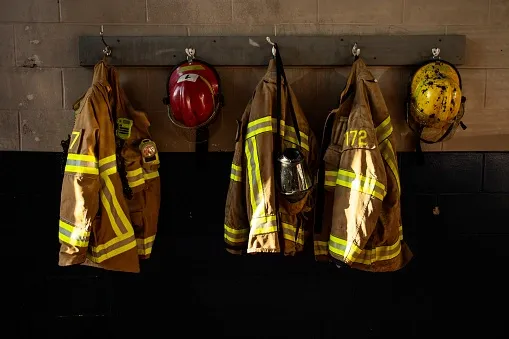Kevin Ferrara, AFSO21

The following pertains to fire departments operating within the Commonwealth of Pennsylvania however, could be applied within your state or country.
The U.S. Fire Administration’s National Fire Department Registry reveals 1,800 registered fire departments in Pennsylvania, the most in the United States. Of those, 96.8% are volunteer or mostly volunteer with the remaining 3.2% being career or mostly career. The sum of volunteer firefighters in Pennsylvania at one time far exceeded 300,000 however, that number has declined to roughly 37,000. Why such a decrease?
What may be a shock, few if any regulations exist concerning the management of career or volunteer municipal fire departments. Municipal fire departments are called upon daily to mitigate incidents involving life, property, and or the environment, with much at stake in terms of potential loss. So why aren’t they regulated and managed like their emergency medical services (EMS) counterparts? The answer might surprise you.
Rather than creating state-wide regulations or standards, in 2008, legislators bestowed each municipality the duty to govern fire services within their jurisdiction. P.L.350, No. 60, The Second Class Township Code, Section 1553, Emergency Services, states, “The township shall be responsible for ensuring that fire and emergency medical services are provided within the township by the means and to the extent determined by the township…”.
What does that mean exactly? Are townships responsible for regulating and managing their local fire department? The answer is yes, with limitations. Volunteer fire departments are deemed a private entity; therefore, townships have limited regulatory and managerial oversight of a fire department’s operational, not administrative functions. Unfortunately, not all townships comprehend or shoulder such responsibility which results in service deficiencies.
The township code states, “determined by the township”, not the fire department. Therefore, townships, in their agreement or contract, must clearly specify conditions to be met by the fire department such as, services to be provided, training and certification of personnel providing services, identifying resources to include mutual-aid, and how township funds provided to the fire department are utilized.
Nationwide, local officials appear oblivious of their authority and obligations regarding fire service. Traditionally, many utterly decline to meddle with their local fire department; entrusting their local Fire Chief to decide what is best. Obliviousness and misapplied trust frequently result in deficient services, larger risk and loss to the community, and potential litigation.
Realizing an discernable disparity among municipalities regarding emergency services, in 2008, the 39-member Senate Resolution Commission recommended municipal officials be educated about fire and EMS crisis and needs. 14-years later, numerous municipalities have yet to be educated or establish effective relationships between themselves and local emergency services organizations. Why?
When firefighters and municipal leaders are not educated and proficient, commensurate to their roles, risk and liability for the fire department and municipality increases, so, why not call for and require standards?
Volunteer municipal fire department leadership, often more than not, oppose municipal involvement, arguing it is unwanted or unnecessary. When attempting to establish standards, municipalities are often met with confrontation, reminded few, if any, state standards exist for fire departments. Most municipal leaders are unaware they are authorized to establish standards and the fire department they have an agreement or contract with must comply to such or face some type of action that could impact the department’s operational functions and public safety.
When asked about standards such as training, several state legislators and municipal officials remarked, requiring volunteer municipal firefighters to be trained and certified would create another burden on top of those they already have to deal with. Would these leaders feel the same if their own house burned or a relative died because those who were tasked to respond, didn’t, were delayed, or, of those who did respond, were inexperienced? It seems those leaders and likely many others, feel, due to the crisis involving a decline in firefighters, the public should just be thankful for whoever shows up and take a chance that firefighters or an innocent bystander won’t be injured or killed. That’s a huge liability to look beyond and one that taxpayers will likely bear should a loss occur, and the incident is litigated.
Many do encourage training, yet they promptly cite the often-lengthy training hours involved, insisting volunteer municipal firefighters don’t have time to participate due to other commitments. Despite the average 160 training hours involved, many volunteer municipal fire departments nationwide have or are in the process of adopting NFPA 1001, Standard for Firefighter Professional Qualifications, Firefighter I level, as a minimum training and certification level for their personnel.
In fact, the Senate Resolution 6 Commission declaring professional certification is needed, in their 2008 Final Report, proposed Firefighter I as the minimum level all state firefighters should be certified to. Is such a sacrifice or burden worth it; absolutely as it without a doubt, reduces risk and liability to the firefighter, the department, and the public.
In closing, should you ever find yourself requesting emergency or non-emergency assistance, ask yourself, regarding those responding, would you rather choose personnel proficient in providing potentially life-saving measures; or would you be satisfied with personnel who are unregulated, unmanaged, or inexperienced who, because of such, are more likely to cause additional harm to you, someone else, or even themselves? Would you accept the latter from your doctor, law enforcement officers, optometrist, or your dentist, all who are regulated, managed, and proficient?